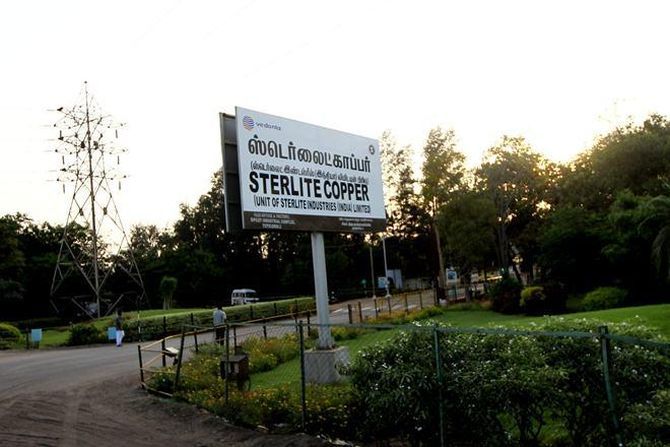When it closed close down the copper plant at Thoothukudi in 2013. Its orders were held illegal by the NGT on procedural grounds

Tamil Nadu government instructed its state pollution control board to ‘permanently’ shut down the existing 1,200 tonnes per day Sterlite copper smelter on May 28.
The copper smelter had already been shut down by the state pollution control board on May 24 after 11 people were shot dead by police to quell protests.
But doubts emerged about the legality and possible procedural fault in the state government’s orders.
Tamil Nadu government’s previous attempt to shut down the copper plant in 2013 had been shot down by the National Green Tribunal (NGT) for procedural lapses.
Ritwik Dutta, environment lawyer at the Supreme Court said, “The closure order should be a watertight order giving detailed reasons for violations of the provisions of the Air Act, Water Act and the Environment (Protection) Act.
"Unless that is done, the order will meet the same fate as before - overturned by the courts on the ground of lack of proper reasons.”
The Tamil Nadu government’s short three-paragraph order instead is only with reference to the Air Act and does not provide providing any reason for closure except citing ‘public interest’.
A senior official at the Union environment ministry said, “Such instructions are given with detailed explanations and reasoning in the manner of a speaking order.”
He did not want to be quoted on the record.
“Legally speaking, there is no such term as a ‘permanent’ closure under the law (Water Act) the Tamil Nadu government has evoked.
"If the company can prove it has rectified any illegality it may have committed under the act it would stand to regain its permits and restart functioning.”
On May 24 the pollution control board on its part had shut the factory claiming it found the company was preparing to run operations without a ‘consent to operate’ which the board has suspended.
The consent to operate is required under the Water Act.
On Monday 28, the Tamil Nadu government used powers under section 18(1)(a) of the Water Act to merely endorse the state pollution board’s May 24, but additionally instructed “the Tamil Nadu Pollution Control Board to seal the unit and close the plant permanently.”
Tamil Nadu pollution control board had once before ordered a shut down of the same plant, in 2013.
But its orders failed to cut ice with the judiciary.
The NGT while setting aside the pollution control board order had stated, “Shutting down an industry amounts to 'civil death' of the company. A direction of closure in relation to a running unit not only results in stoppage of production but has far-reaching economic, social, and labour consequences. Before directing the civil death of a company, the decision making authority is expected to have before it some reliable and cogent evidence.”
The NGT concluded that the pollution control board had neither reliable nor cogent evidence to prove the industry had indeed been the reason for pollution and consequent public health impacts in the area.
Dutta noted that “Both the consent under air act and the environment clearance should be revoked.
"Most importantly, the state pollution control board should direct for a restoration of the ecology as well as payment of compensation for the damages in accordance with polluter pay principle.
"It is important to hold the company liable for the damages."
State or central governments usually use the much stricter provisions of the Environment Protection Act, 1986 to stop projects or order closure of polluting industries.
That too is done in two steps. A show cause notice is first given to the project proponent as a chance to defend itself.
Based on the responses from the project proponent and other evidence gathered during the process, the government is required to write out a clear explained reason for continuing to believe that the plant should be shut down.
Under the NGT Act, a state government is also empowered to go to the tribunal and seek damages from a polluter to restore the environment and any damage done to public health.
Madhya Pradesh is ostensibly the only state government to have used these provisions.
Photograph: PTI Photo












 © 2025
© 2025